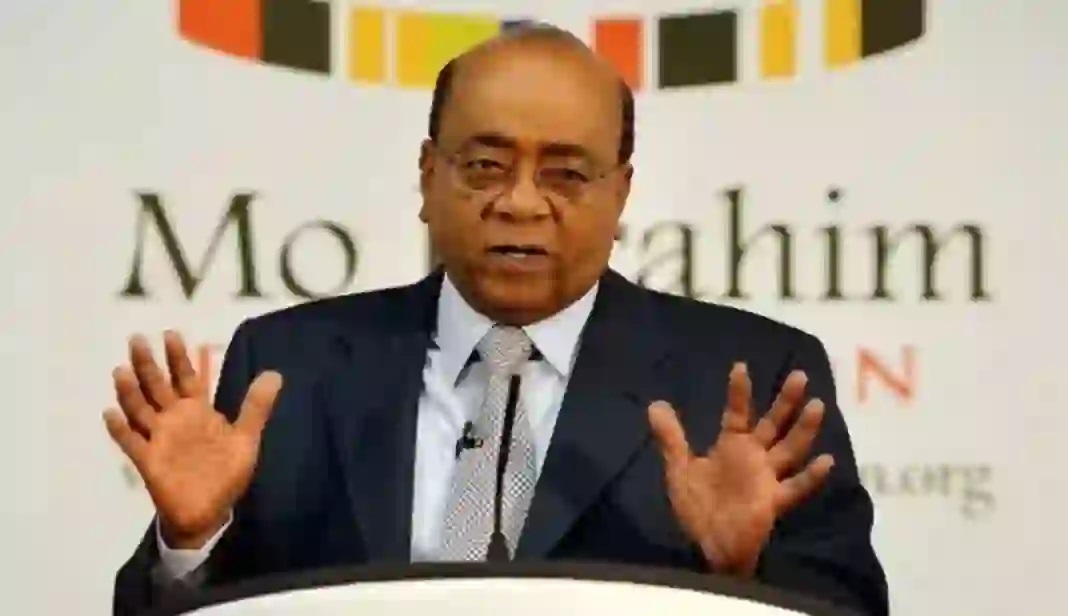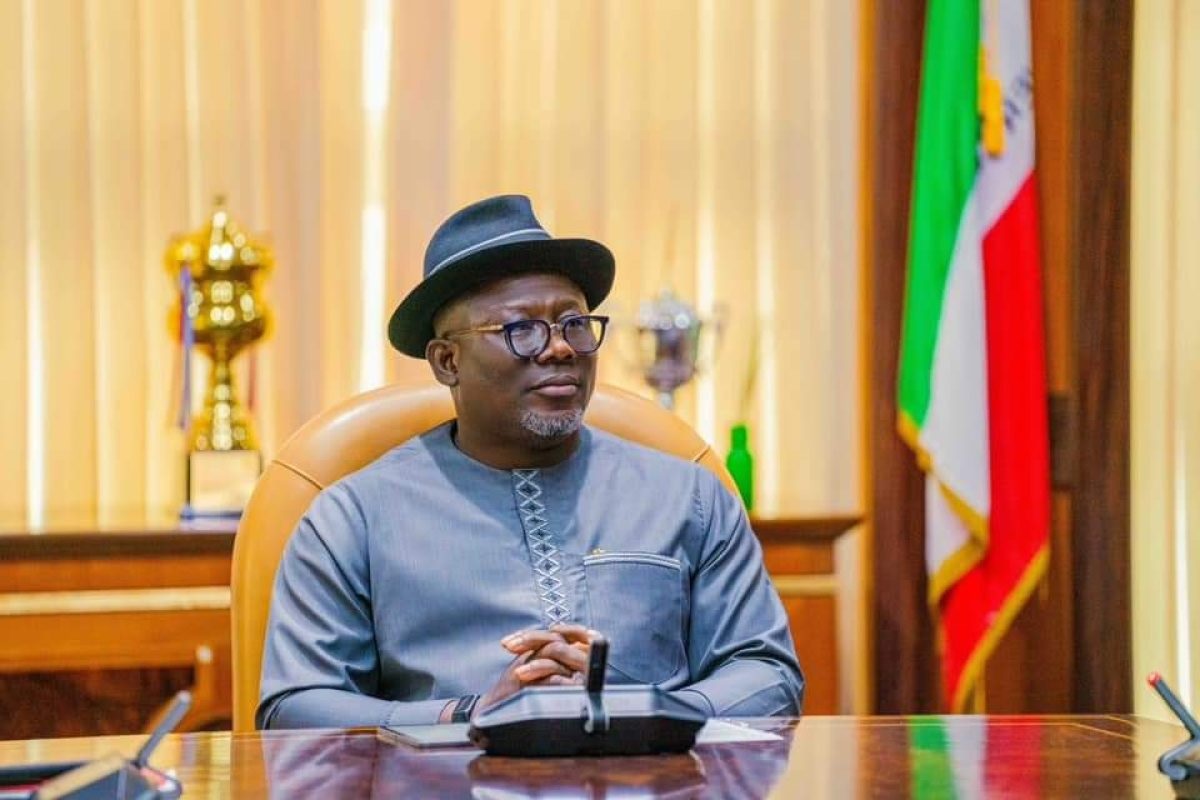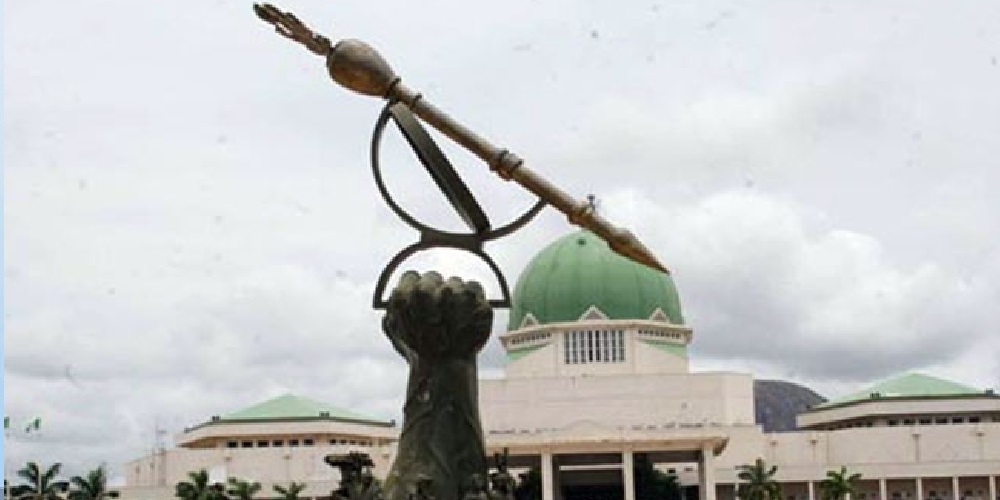News
Nigeria Among Worst -governed Countries In Africa – Mo Ibrahim

Nigeria has been ranked among worst-governed countries in Africa, coming 33rd among 54 countries in Africa.
The rankings is contained in a report published by the Mo Ibrahim Foundation, which cited bad and deteriorating governance in the last 10 years as reasons for ranking Nigeria among 11 other countries in this category.
In the report: “2024 Ibrahim Index of African Governance (IIAG)” published by the foundation, it saw Nigeria slump three places from 30th on the continent to 33rd, making it one of the worst-ruled states since 2014.
Established in 2006, the foundation says it is dedicated to strengthening the African voice on global challenges, especially by providing data and analysis to assess continental challenges.
Published since 2007, the IIAG assesses the public governance performance of 54 African countries every two years over the last available decade. IIAG data comes from 49 independent sources, some of which are financially supported by the Mo Ibrahim Foundation.
Overall, the country scored 45.7 per cent , flopping on absence of armed conflict (2.1 per cent) and scoring 39 per cent on security and rule of law and 47.3 per cent on accountability and transparency. On anti-corruption, Nigeria scored 28.9 per cent.
It scored 47 per cent on inclusion; 43 per cent on equality; 59 per cent on women equality; 48.6 per cent on economic opportunity; 41 per cent on infrastructure and 44.6 per cent on health; 51 per cent on education; 44 per cent on social protection and 45 per cent on sustainable environment.
In all, 33 countries in Africa made progress in governance during the last decade while 21 countries became worse in 2023 than it was in 2014.
Nigeria was grouped with Sudan, Senegal, Tunisia, Uganda, Botswana, Burkina Faso, Eswatini, Guinea, Mauritius, and Mozambique as those with worst deterioration in governance in the last decade.
It stated that governance progress in Africa was grinding to a halt as security and democracy on the continent deteriorated further, threatening substantial advances in human and economic development.
The 2024 IIAG stated that after four years of almost complete stagnation, Africa’s overall governance progress ground to a halt in 2022 as rising conflict and insecurity, as well as a shrinking democratic space across the continent, undermined critical progress achieved in human and economic development.
“Over the decade 2014-2023, there is progress for just over half (52.1 per cent) of Africa’s population, living in 33 out of 54 countries, but for the remaining half, the level of overall governance reached in 2023 is worse than in 2014,” it said.
Reflecting on the findings of the 2024 IIAG, Mo Ibrahim, the Founder and Chair of the Mo Ibrahim Foundation, said: “The 2024 IIAG is a sobering reminder of the threat that a deepening security crisis and shrinking participatory environment poses to the continent’s progress. Of course, it also reflects the global crisis.
“Escalating conflicts and deepening mistrust in democratic institutions and values are not specific to Africa; we see it right around the world. But it is specifically concerning in Africa because it threatens our progress in economic and social development, as well as the advancements which we are yet to achieve.”
Collected from 49 independent sources, with some data commissioned by the Mo Ibrahim Foundation, the IIAG is based on 322 variables clustered in 96 indicators, organised under 16 sub-categories and four main categories: Security & Rule of Law; Participation, Rights & Inclusion; Foundations for Economic Opportunity; and Human Development.
“At country level, 13 countries – including Egypt, Madagascar, Malawi, Morocco, Côte d’Ivoire, Togo and Somalia – managed to follow a successful course of overall governance progress over the decade, even accelerating improvement since 2019.
“The latter four also rank in the top 10 most improved countries between 2014 and 2023, along with Seychelles, Gambia, Sierra Leone, Angola, Mauritania and Djibouti. Seychelles, having made striking progress over the decade (+10.0 points), overtakes Mauritius and is the top-ranking country in 2023.
“Following an opposite course, 11 countries are on a concerning decade-long trend of deterioration that even worsens since 2019. Some of them, such as Sudan, grapple with ongoing crises. However, decade-long deteriorations are also seen in high-ranked countries.
“Mauritius (2nd), Botswana (5th), Namibia (6th), and Tunisia (9th), though still ranking in 2023 among the 10 highest-scoring countries, also feature among the most deteriorated countries over 2014-2023, along with Comoros, Mali, Burkina Faso, DR Congo, Niger and Eswatini.
Source: ThisDay
News
Delta gov fires Information Commissioner with immediate effect

Delta State governor, Sheriff Oborevweri, has fired the information commissioner, Ifeanyi Osuoza, with immediate effect over alleged poor performance.
According to government sources, the governor had directed the commissioner for works (rural roads) Charles Aniagwu to take over the affairs of the Ministry of Information temporarily.
Accordingly, Aniagwu will resume office on Monday as both Commissioners for Information and Works.
According to government sources, the governor relieved Osuoza’s appointment as information commissioner following a series of complaints during his short stay.
The Director General, Delta State Bureau for Orientation and Communication, Dr. Fred Latimo Oghenesivbe, who confirmed the development said: “the former commissioner for information, Ifeanyi Osuoza had been briefed already of the state of affairs.”
Oghenesivbe stated that there will be an official announcement to that effect by the governor but for now “Charles Aniagwu will take over the two ministries (works and information) for the meantime.”
Aniagwu had served as Chief Press Secretary (CPS) and Commissioner for Information during former governor Ifeanyi Okowa’s two-term administration before being appointed as works commissioner in charge of rural roads.
The Guardian
News
Indian lawmaker dies after shooting himself

Indian lawmaker Gurpreet Gogi, a member of the Aam Aadmi Party (AAP), has tragically died after accidentally shooting himself. The incident reportedly occurred late on Friday night, resulting in fatal injuries to his head.
Gurpreet Gogi was immediately taken to Dayanand Medical College and Hospital in Ludhiana, where doctors confirmed his death upon arrival. The Punjab Police described the incident as an accident. Deputy Commissioner of Police (DCP) Jaskaran Singh Teja explained, “As per the family members, Gurpreet Gogi accidentally shot himself, resulting in bullet injuries to his head. He was declared dead at the hospital, and his body is now at the mortuary in DMC Hospital.”
The exact cause of death will be clarified after a post-mortem examination. “The post-mortem report will clarify the cause of death,” added the DCP. Authorities are continuing their investigation to understand the full details of the incident.
Gogi became a notable figure in Punjab politics after joining the AAP in 2022. He gained recognition when he defeated two-time Congress MLA Bharat Bhushan Ashu in the Ludhiana assembly elections.
This tragedy brings to mind a similar event in 2019, when a candidate for the Mississippi state legislature, Carl Robinson, fatally shot his wife before taking his own life.
News
NASS To Presidency: Border Closure Not Effective

Federal lawmakers in both chambers of the National Assembly have expressed strong reservations about the effectiveness of border closure by the Federal Government.
Speaking at the Joint Committees on Industry, Trade and Investment on 2025 Budget Defence by the Trade Ministry, Senator representing Osun East, Senator Francis Adenigba Fadaunsi noted that the exit of Niger Republic and Chad from the Economic Community of West African States (ECOWAS) with the consequent opening of their borders to Nigerians are worsening the menace of insecurity across the affected states.
He said:” Border closure is hampering the economic fortunes of the country because rather than curb smuggling, it encourages it.
“For example on rice production alone, the largest percentage of 4 million tonnes shortfall is being smuggled into the country since local producers are only producing 3 million tonnes out of the expected consumption rate of 7 million tonnes.”
In her submission, House of Representatives member representing Nangero/ Potiskum Federal Constituency of Yobe State, Hon Fatima Talba, declared that the borders in her constituent were technically open, not closed.
“Going by free movement of people and even criminals across the borders, it is time for us, to stop fooling ourselves with border closure.”
Paul Kalejaiye representing Ajeromi / Ifelodun Federal Constituency of Lagos State in the House of Representatives, also spoke in similar vein.
“We need to even ask the question on the border policy being implemented. Are all borders across the Nation closed or those closed are from a segment of the country.”
The Committee later urged the Minister of Industry, Trade and Investment, Dr Jumoke Oduwole who came for the budget defence session, to liaise with the Presidency on the way out of the border closure.
Oduwole had earlier in her presentation to the committee, said the sum of N3.8billion is earmarked for capital expenditure in the 2025 fiscal year, N4.65billion for personnel cost, N1.45billion for overhead and projected revenue of N2 4billion.
-

 News20 hours ago
News20 hours agoGive unemployed youths free land to farm, Utomi tells Tiinubu
-

 News20 hours ago
News20 hours agoPDP protests as councillors impeach another Edo LG Chairman, Vice
-

 News20 hours ago
News20 hours agoGovt to withdraw contentious veterans’ bill
-

 News16 hours ago
News16 hours agoDunamis Healing Miracles Are Not Authentic -Former Pastor Alleges
-

 News20 hours ago
News20 hours agoNaira abuse: Policeman in viral video with Okoya’s children detained for misconduct
-

 Economy21 hours ago
Economy21 hours agoTikTok To Shut Down On January 19, Gives Reason
-

 News21 hours ago
News21 hours agoPolice to begin enforcement of third-party insurance for vehicle owners Feb
-

 News21 hours ago
News21 hours agoPolice arrest 38-year-old man for spreading fake news








